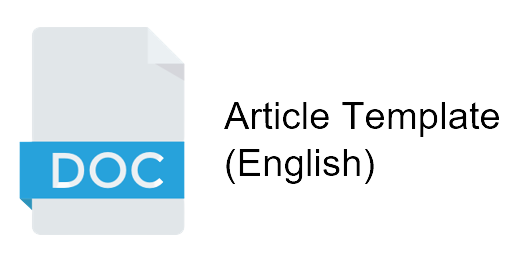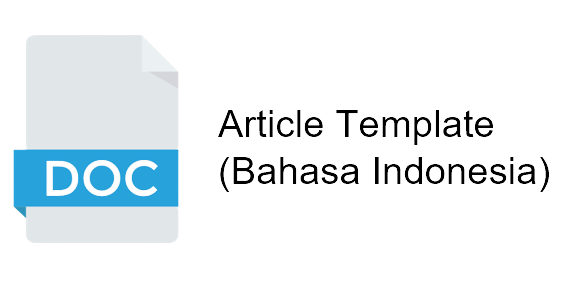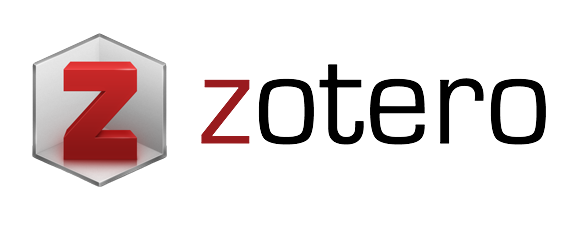Analisis Konten Media Sosial Arsip UGM di Masa Pandemi Covid-19: Peluang dan Tantangan
Thoriq Tri Prabowo(1*)
(1) Program Studi Ilmu Perpustakaan UIN Sunan Kalijaga Yogyakarta
(*) Corresponding Author
Abstract
The use of social media for public institutions during the covid-19 pandemic is a necessity. In its use, social media brings both opportunities and challenges at the same time. Monitoring and evaluation of the use of social media for institutions finds the right time to be implemented immediately. This study aims to describe the types of content uploaded on the social media of the archive of UGM during the covid-19 pandemic and to describe the opportunities and challenges of using social media during the covid-19 pandemic at the archive of UGM. This research is a combination of qualitative and literature research. Primary data was collected through observations on uploading the Archive of UGM Instagram account (@arsipugm). Data collection on uploads in the last three months (September-November 2020). The data were verified with secondary data obtained through documentation in scientific publications and information channels related to the Archive of UGM. Data analysis was conducted by reducing the findings from the observation and documentation process. Data were presented in the form of tables, figures and narration. The results of this study indicate that during the covid-19 pandemic there were only two types of uploads from @arsipugm. They are archival material and reports. The percentage of uploads with archived material was 89.29% and report-type uploads was 10.71%. The use of social media for the archive of UGM during the covid-19 pandemic finds its opportunities, includes: socialization of archival services during the covid-19 pandemic; cooperation between unit and parent institutional accounts; and creative media uploads. Meanwhile, at the same time it has some challenges, includes: unoptimal use of Instagram's features; lack of interaction between the admin and the audience; the variant and volume of uploaded material has not been maximized; and monotone time lines.
Keywords
Full Text:
PDFReferences
Acker, A., & Brubaker, J. R. (2014). Death, memorialization, and social media: a platform perspective for personal archives. Archivaria, 77, 1–23. AlAwadhi, S., & Al-Daihani, S. M. (2019). Marketing academic library information services using social media. Library Management, 40(3/4), 228–239. https://doi.org/10.1108/LM-12-2017-0132 Ana, P. (2013). Lembaga kearsipan: upaya pengelolaan arsip secara kolektif di perguruan tinggi. Fihris, 3(2), 150–160. Anderson, K. E. (2018). Getting acquainted with social networks and apps: Combating fake news on social media. Library Hi Tech News, 35(3), 1–6. https://doi.org/10.1108/LHTN-02-2018-0010 Arsip UGM. (2020, November 25). Sejarah singkat. Arsip UGM. http://arsip.ugm.ac.id/profile/sejarah-singkat/ Bekkers, V., Edwards, A., & de Kool, D. (2013). Social media monitoring: Responsive governance in the shadow of surveillance? Government Information Quarterly, 30(4), 335–342. https://doi.org/10.1016/j.giq.2013.05.024 Bountouri, L., & Giannakopoulos, G. (2014). The use of social media in archives. Procedia - Social and Behavioral Sciences, 147, 510–517. https://doi.org/10.1016/j.sbspro.2014.07.146 Brubaker, J. R., & Callison-Burch, V. (2016). Legacy contact: designing and implementing post-mortem stewardship at Facebook. Proceedings of the 2016 CHI Conference on Human Factors in Computing Systems, 2908–2919. https://doi.org/10.1145/2858036.2858254 DeVito, M. A., Birnholtz, J., & Hancock, J. T. (2017). Platforms, people, and perception: using affordances to understand self-presentation on social media. Proceedings of the 2017 ACM Conference on Computer Supported Cooperative Work and Social Computing, 740–754. https://doi.org/10.1145/2998181.2998192 Drahošová, M., & Balco, P. (2017). The analysis of advantages and disadvantages of use of social media in European Union. Procedia Computer Science, 109, 1005–1009. https://doi.org/10.1016/j.procs.2017.05.446 Fathurrahman, M. (2018). Pentingnya arsip sebagai sumber informasi. JIPI (Jurnal Ilmu Perpustakaan Dan Informasi), 3(2), 215–225. https://doi.org/10.30829/jipi.v3i2.3237 Gashami, J. P. G., Libaque-Saenz, C. F., & Chang, Y. (2019). Social-media-based risk communication for data co-security on the cloud. Industrial Management & Data Systems, 120(3), 442–463. https://doi.org/10.1108/IMDS-03-2019-0131 Good, K. D. (2013). From scrapbook to Facebook: a history of personal media assemblage and archives. New Media & Society, 15(4), 557–573. https://doi.org/10.1177/1461444812458432 Habibi, M., & Cahyo, P. W. (2019). Clustering user characteristics based on the influence of hashtags on the Instagram platform. IJCCS (Indonesian Journal of Computing and Cybernetics Systems), 13(4), 399–408. https://doi.org/10.22146/ijccs.50574 Instagram. (2020, November 26). Instagram features. Instagram. https://about.instagram.com/features International Council on Archives. (2020, November 29). The role of archives in the #COVID-19 crisis | International Council on Archives. International Council on Archives. https://www.ica.org/en/the-role-of-archives-in-the-covid-19-crisis Jensen, B. (2013). Instagram as cultural heritage: user participation, historical documentation, and curating in Museums and archives through social media. 2013 Digital Heritage International Congress (DigitalHeritage), 2, 311–314. https://doi.org/10.1109/DigitalHeritage.2013.6744769 Kavanaugh, A. L., Fox, E. A., Sheetz, S. D., Yang, S., Li, L. T., Shoemaker, D. J., Natsev, A., & Xie, L. (2012). Social media use by government: from the routine to the critical. Government Information Quarterly, 29(4), 480–491. https://doi.org/10.1016/j.giq.2012.06.002 KEMENPANRB RI. (2012). Pedoman pemanfaatan media sosial instansi pemerintah. KEMENPANRB RI. https://jdih.menpan.go.id/data_puu/PERMENPANRB%20NO%2083%20TAHUN%202012.pdf Khasanah, F. N., Herlawati, Samsiana, S., Handayanto, R. T., Gunarti, A. S. S., Raharja, I., Maimunah, & Benrahman. (2020). Pemanfaatan media sosial dan ecommerce sebagai media pemasaran dalam mendukung peluang usaha mandiri pada masa pandemi covid 19. Jurnal Sains Teknologi Dalam Pemberdayaan Masyarakat, 1(1), 51–62. https://doi.org/10.31599/jstpm.v1i1.255 Koulouris, A., Vraimaki, E., & Koloniari, M. (2020). Covid-19 and library social media use. Reference Services Review, ahead-of-print(ahead-of-print). https://doi.org/10.1108/RSR-06-2020-0044 Kurniasih, N. (2013, September 26). Penggunaan media sosial bagi humas di lembaga pemerintah [Makalah]. Diskusi Forum Kehumasan Kota Tangerang, Bogor. https://www.researchgate.net/profile/Nuning_Kurniasih2/publication/308513901_Penggunaan_Media_Sosial_bagi_Humas_di_Lembaga_Pemerintah/links/57e5316c08ae978dd24d0b2e.pdf Kurniawan, Y., Setiawan, S., Bhutkar, G., Johan, & Cabezas, D. (2020). Instagram engagement for university. 2020 International Conference on Information Management and Technology (ICIMTech), 887–892. https://doi.org/10.1109/ICIMTech50083.2020.9211134 Kusumawardani, G., & Hanggoro, B. T. (2018). Media sosial sebagai alternatif penyimpanan arsip digital pribadi. Jurnal Kearsipan, 13(2), 157–175. Mayesti, N. (2020, November 4). Pendayagunaan media sosial perpustakaan di masa pandemi covid-19 [Presentasi]. Seminar Nasional “Menakar Peran Bidang Perpustakaan dalam Era & Pasca Pandemi Covid-19 (Perspektif Lokalitas),” Yogyakarta. Netshakhuma, N. S. (2020). Responsibilities of archivist now and in the future as the result of covid – 19; case of ICA-SUV. Digital Library Perspectives, ahead-of-print(ahead-of-print). https://doi.org/10.1108/DLP-06-2020-0050 Nisar, T. M., Prabhakar, G., & Strakova, L. (2019). Social media information benefits, knowledge management and smart organizations. Journal of Business Research, 94, 264–272. https://doi.org/10.1016/j.jbusres.2018.05.005 Obar, J. A., & Wildman, S. S. (2015). Social media definition and the governance challenge—an introduction to the special issue (SSRN Scholarly Paper ID 2663153; pp. 745–750). Social Science Research Network. https://doi.org/10.2139/ssrn.2663153 Prabowo, T. T. (2020). Memperebutkan ruang publik virtual: literasi, hoax, dan perdamaian. Zahir Publishing. Suharso, P., Arifiyana, I. P., & Wasdiana, M. D. (2020). Layanan perpustakaan perguruan tinggi dalam menghadapi pandemi covid-19. Anuva: Jurnal Kajian Budaya, Perpustakaan, dan Informasi, 4(2), 271–286. https://doi.org/10.14710/anuva.4.2.271-286 Supriyono, S. (2020). Media sosial sebagai alat promosi yang efektif bagi usaha rintisan di era normal baru. Prosiding Seminar STIAMI, 7(2), 53–61. Taufik, T., & Warsono, H. (2020). Birokrasi baru untuk new normal: tinjauan model perubahan birokrasi dalam pelayanan publik di era covid-19. Dialogue : Jurnal Ilmu Administrasi Publik, 2(1), 1–18. https://doi.org/10.14710/dialogue.v2i1.8182 Trifonova, V. (2020, August 4). How coronavirus has changed the way we use social media. GWI. https://blog.globalwebindex.com/chart-of-the-week/social-media-amid-the-outbreak/ Velte, A. (2018). Ethical challenges and current practices in activist social media archives. The American Archivist, 81(1), 112–134. https://doi.org/10.17723/0360-9081-81.1.112 Wang, S., Luo, C., & Jiang, P. (2018). Empirical study about the motivations for using multifunctional social media: based upon the uses and gratifications theory. ICEB 2018 Proceedings, 77, 265–274. Warschauer, M., & Matuchniak, T. (2010). New Technology and digital worlds: analyzing evidence of equity in access, use, and outcomes. Review of Research in Education, 34(1), 179–225. https://doi.org/10.3102/0091732X09349791 Washburn, B., Eckert, E., & Proffitt, M. (2013). Social media and archives: a survey of archive users. in OCLC Online Computer Library Center, Inc. OCLC Online Computer Library Center, Inc. https://eric.ed.gov/?id=ED564812 Yakel, E., Rieh, S., St. Jean, B., Markey, K., & Kim, J. (2008). Institutional repositories and the institutional repository: college and university archives and special collections in an era of change. The American Archivist, 71(2), 323–349. https://doi.org/10.17723/aarc.71.2.c7t344q22u736lr2 Yavetz, G., & Aharony, N. (2020). Social media in government offices: usage and strategies. Aslib Journal of Information Management, 72(4), 445–462. https://doi.org/10.1108/AJIM-11-2019-0313
Article Metrics
Refbacks
- There are currently no refbacks.
Copyright (c) 2021 The authors

This work is licensed under a Creative Commons Attribution-ShareAlike 4.0 International License.







